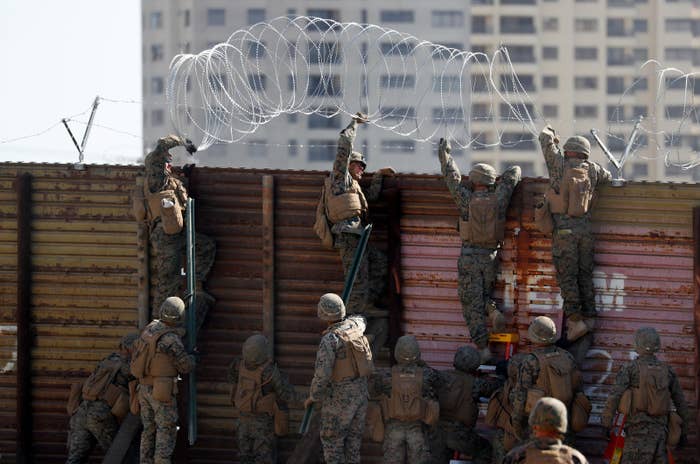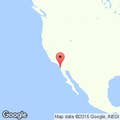
TIJUANA, Mexico — Border officials have shut down multiple lanes of traffic at the crossing between Tijuana and San Diego — one of the busiest in the world — as troops install wires, barriers, and fencing in anticipation of a caravan of Central American migrants moving toward the port.
The actions are the latest in a mission for the thousands of troops the Trump administration has deployed to the border as a result of the incoming migrant caravan. As the thousands of Central Americans have approached, the White House has ordered a number of policy shifts that advocates and experts characterize as legally questionable, ineffective, and frenzied.
Last week, the administration blocked asylum eligibility for migrants who cross the US–Mexico border illegally, a move they said was intended to push people toward the ports to make asylum claims in a more efficient process. Those same ports of entry are already the site of weekslong waits, prompting growing concerns about how claims are processed as many migrants are reportedly turned away.
Starting Tuesday, military personnel will help “harden” the California border crossings of Otay Mesa and San Ysidro and the areas between due to “the potential safety and security risk" that the caravan could cause," US Customs and Border Protection officials said in a statement. Three of the 17 lanes of traffic at San Ysidro will be shut down, while one of the dozen lanes at Otay Mesa will be closed as troops and border agents make the preparations. A local television station caught footage from a helicopter showing long lines of traffic heading to San Ysidro after the closures.
The first group of people from the caravan started to arrive in the last few days. On Tuesday a group of about 350 people who were at one point part of the main caravan making its way north arrived in Tijuana. Late Sunday a contingent of 78 LGBT people from the caravan arrived on buses from Mexico City paid for my advocacy organizations in the United States.
Former Homeland Security officials pointed to the shutdown as evidence that the administration cares little about migrants making asylum claims when they arrive at the border.
“At the end of the day, they want to block people from making asylum claims — period,” said John Sandweg, former head of the US Immigration and Customs Enforcement under the Obama administration. “It isn’t about the reasons they purported to say in the regulation and proclamation — to create a more orderly process — this is about blocking people from making asylum claims and getting around the statutes.”
Border officials insisted that the caravan’s pending arrival made the moves necessary.
“CBP has been and will continue to prepare for the potential arrival of thousands of people migrating in a caravan heading towards the border of the United States,” said Pete Flores, director of field operations in San Diego, in a statement. “These preparations include training exercises, deploying additional CBP personnel, and partnering with the U.S. military to harden our ports of entry and the border area between those legal crossings into the U.S.”
Rep. Scott Peters, a Democrat from San Diego, blasted the move.
"The Trump Administration continues to waste federal resources and wrongly treat refugees fleeing violence like armed invaders," Peters said. "Closing ports of entry and deploying troops to the border are both terrible decisions that do nothing to make us safer."
At the crossing, commuters complained about the delays caused by the lane closures and preparations being made by border officials.
"The wait really is a wait today because the line is really slow,” said Alfredo Ibarra, a 62-year-old Ensenada resident, who crosses the border every day for work.
"Obviously these people are panicked because of the coming famous Honduran caravan. But I believe Mr. Trump is overly fearful. Not even he has the means to stop them because he is trying to use extreme force to stop them but these people are not going to dare to cross illegally especially if you have armed people here,” he said as he pointed to the troops standing behind a barricade.
Salvador Campos, a 55-year-old Tijuana resident who works in security in California, said the barricades are going to make the line “even slower” than it already is on a normal day. Usually, it takes him anywhere between an hour to an hour and a half to cross. He had already been waiting two hours when a reporter spoke to him and said he had notified a co-worker he was going to be late to work.
"It's not going to help because these guys are going to come and ask for asylum at the pedestrian walkway,” he said. “They're not going to come through the car lanes, I don't think so. This is not going to help in anything and will only harm us."
Defense Secretary Jim Mattis signed the order authorizing the deployment of troops to the border in October. Mattis is set to visit the Texas border Wednesday.


